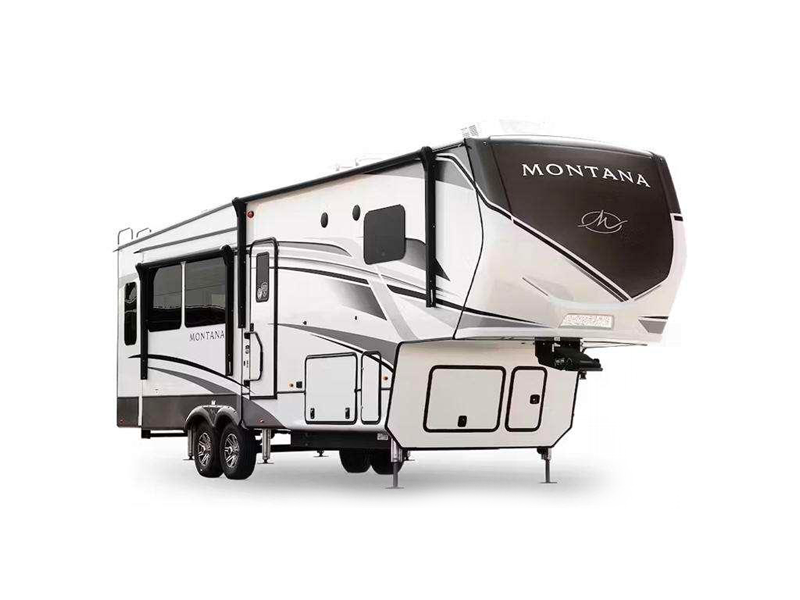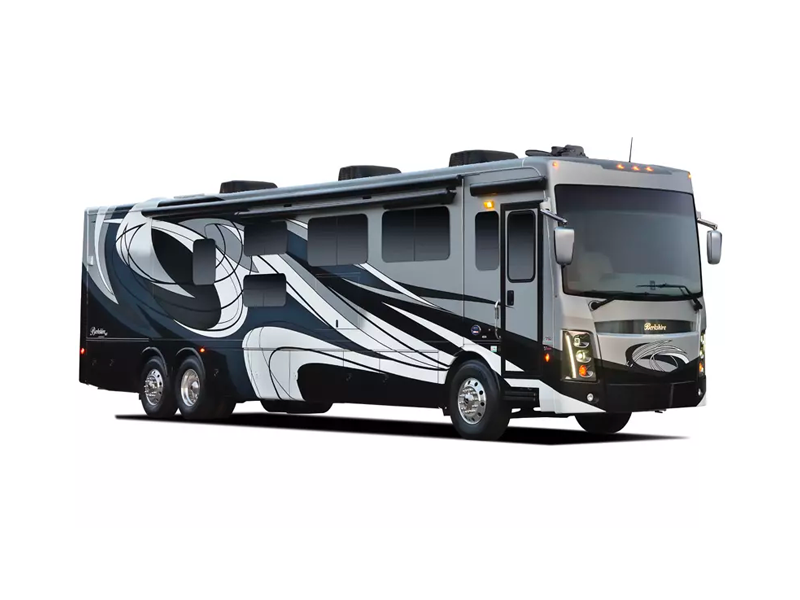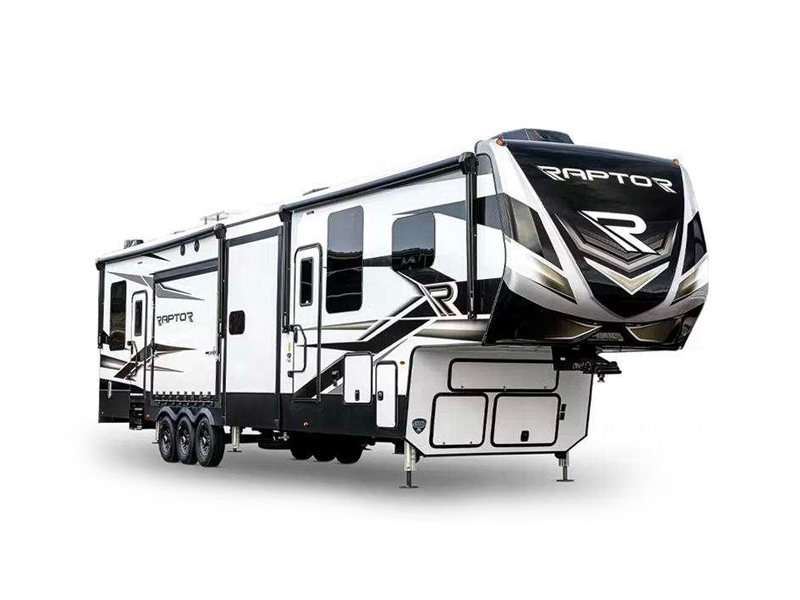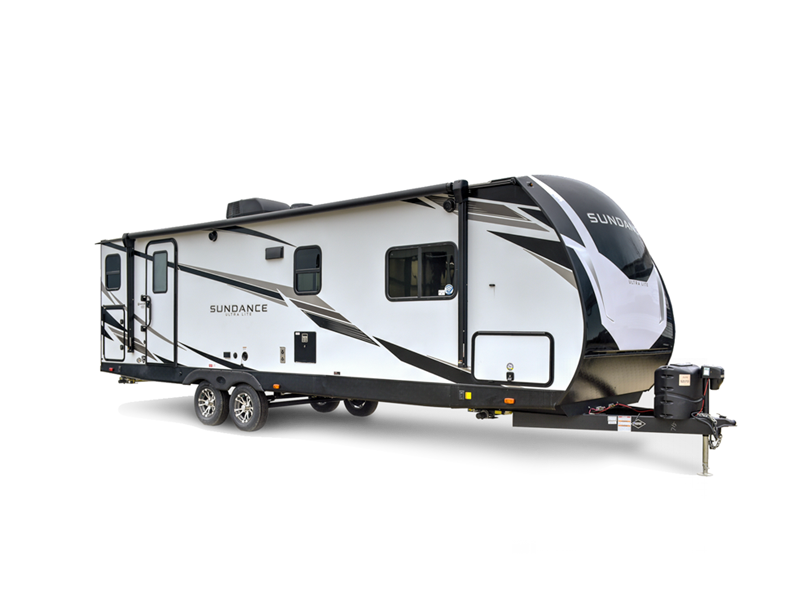Managing RV mail when your home has wheels presents unique challenges that traditional homeowners never face. Whether you’ve chosen full-time RV living to escape rent, rebuild after financial hardship, or simply embrace a minimalist lifestyle, establishing reliable RV mail service is essential for maintaining your legal status, financial accounts, and personal connections.
This isn’t just about receiving packages from Amazon. RV mail management involves maintaining legal residency, receiving government documents, keeping your driver’s license current, and ensuring you don’t miss critical financial correspondence. For those rebuilding credit or managing tight budgets while living in their RV, reliable RV mail solutions are essential for financial stability.
At RV Depot, we’ve helped thousands transition to RV life, and mail management is one of the most common concerns. Whether you’re parked permanently at a family member’s property, staying long-term at an RV park, or actually traveling, here’s your complete guide to handling mail affordably and legally.
The Legal Reality: Why You Need More Than Just Any Address
Before exploring solutions, let’s address the elephant in the room: legal requirements. Every state requires a “permanent address” for:
- Driver’s license and vehicle registration
- Voter registration
- Tax purposes
- Banking and credit applications
- Insurance policies
Important: Not all addresses work for all purposes. Some states don’t accept PO Boxes for driver’s licenses. Some banks require a physical street address. Understanding these requirements upfront saves headaches later.
Option 1: Using a Friend or Family Member’s Address (The Budget-Friendly Choice)
For many entering full-time RV living, using a trusted friend or family member’s address is the most practical starting point. This is especially common when you’re parking your RV on their property or staying in the same general area.
The Reality of This Arrangement:
True Pros:
- Completely free (saves $10-50/month over other options)
- Establishes legal residency in that state
- Works for all official purposes
- Someone you trust handles important documents
- Can receive packages of any size
Honest Cons:
- Creates ongoing obligation for your helper
- Their life changes (moves, relationship issues) affect your mail
- Privacy concerns with sensitive documents
- Potential family tension over boundaries
- May affect their homeowner’s insurance or HOA rules
Making It Work Successfully:
- Have the conversation upfront about expectations
- Offer to help with gas money for mail runs
- Use USPS Informed Delivery to see what’s coming
- Set regular forwarding schedule (weekly/monthly)
- Have a backup plan if situations change
Real Talk: This works best when you’re genuinely close to the person and communicate regularly. If you’re rebuilding relationships after tough times, consider whether this adds helpful connection or unwanted pressure.
Option 2: Mail Forwarding Services (The Reliable Middle Ground)
Professional mail forwarding services designed for RVers and travelers provide a permanent address that’s truly permanent—no matter what happens in your personal relationships.
Popular RV Mail Services:
Escapees Mail Service (Livingston, TX)
- Cost: $165/year + forwarding fees
- Provides Texas address
- Full-time RVer focused
- Excellent reputation since 1979
Dakota Post (South Dakota)
- Cost: $150/year + forwarding
- South Dakota residency benefits
- No state income tax
- Low vehicle registration costs
St. Brendan’s Isle (Florida)
- Cost: $199/year + forwarding
- Florida residency option
- Good for East Coast folks
- Package receiving included
Real Costs for Full-Time RV Living:
| Service Component | Monthly Cost |
|---|---|
| Base service fee | $12-17 |
| Weekly forwarding | $15-25 |
| Occasional packages | $10-20 |
| Total Average | $37-62 |
Compared to missing one important document or late payment fee, this investment protects your financial rebuilding efforts.
Hidden Benefits:
- Professional handling reduces lost mail
- Can forward to different locations as you move
- Email notifications before forwarding
- Check deposit services available
- Package consolidation saves shipping
Option 3: Virtual Mailbox Services (The Modern Solution)
Virtual mailbox services revolutionize mail handling for full-time RV living by digitizing most correspondence. Your mail goes to a commercial address where it’s scanned and uploaded to a secure online portal.
How Virtual Mail Really Works:
- Mail arrives at their facility
- Exterior envelope scanned and uploaded
- You view online and choose: open/scan, forward, or shred
- Contents scanned if requested (small fee)
- Physical items forwarded when needed
Legitimate Virtual Mailbox Providers:
Anytime Mailbox
- $9.99-29.99/month plans
- 1,300+ locations nationwide
- Real street addresses
- Package receiving varies by location
iPostal1
- $9.99-69.99/month
- 2,200+ locations
- Digital and physical forwarding
- Check deposit service
VirtualPostMail
- $20-35/month
- Multiple address options
- Automatic check deposit
- Free shredding
Budget Reality Check:
For someone watching every dollar in full-time RV living, paying $20-30 monthly might seem steep. But consider:
- No gas driving to collect mail
- Instant access to important documents
- Never miss time-sensitive correspondence
- Reduces physical mail to forward (saves money)
- Check deposits without bank visits
Perfect for: Those working remotely, managing finances digitally, or actually traveling frequently.
Option 4: Post Office Boxes (The Traditional But Limited Option)
The USPS PO Box remains a viable option for some full-time RV living situations, but with important limitations you need to understand.
Current PO Box Costs (2024):
| Box Size | 3-Month | 6-Month | 12-Month |
|---|---|---|---|
| Small | $45-90 | $70-140 | $106-212 |
| Medium | $75-150 | $115-230 | $166-332 |
| Large | $120-240 | $190-380 | $286-572 |
Prices vary dramatically by location—rural areas cost less.
Critical Limitations:
What PO Boxes CAN’T Do:
- Receive packages from UPS/FedEx (without premium service)
- Serve as address for driver’s license (most states)
- Work for vehicle registration (many states)
- Satisfy physical address requirements for some services
What They CAN Do:
- Receive all USPS mail securely
- Provide stable address for years
- Work in almost every town
- Hold mail during vacations
- Forward mail (additional fees)
USPS Street Addressing Service:
Some post offices now offer “Street Addressing” where your PO Box gets a real street address:
- Instead of: PO Box 123
- You use: 123 Main Street #123
- Allows some package deliveries
- May satisfy more address requirements
- Free with PO Box rental where available
Best for: Those staying in one area long-term who need a simple, secure mail solution.
Option 5: RV Park Office Addresses (The Overlooked Option)
Many long-term RV residents don’t realize their RV park might offer mail services. For full-time RV living in one location, this can be the simplest solution.
How RV Park Mail Works:
- Park provides mailbox or accepts packages at office
- You use: [Park Address] + Space/Lot number
- Staff notifies you of deliveries
- Usually free or low-cost with residency
Evaluating Your RV Park:
Questions to Ask:
- Do you accept mail/packages for residents?
- What address format should I use?
- Are there size/frequency limitations?
- How are residents notified?
- Is this included in lot rent?
Common Limitations:
- May not constitute legal residency address
- Staff changes can affect reliability
- Not all parks offer this service
- Package theft concerns in some locations
Option 6: UPS Store/Physical Mailbox Services (Premium But Flexible)
The UPS Store and similar services offer a middle ground between PO Boxes and virtual mail services.
Real Costs and Benefits:
- Monthly fees: $20-40 (varies by location)
- Real street address: Works for most requirements
- Package acceptance: All carriers
- Mail forwarding: Available but pricey
- 24/7 access: At some locations
Hidden Advantage: These addresses often work for business registration if you’re self-employed—important for many in full-time RV living.
Option 7: Establishing Texas Residency (The Strategic Choice)
Since you’re already connected with RV Depot in Texas, consider establishing Texas residency for your full-time RV living. Texas offers significant advantages:
Texas Residency Benefits:
- No state income tax (huge for remote workers)
- RV-friendly laws and regulations
- Reasonable vehicle registration costs
- Good mail forwarding services available
- Established full-timer community
How to Establish Texas Residency:
- Get a Texas mailing address (any method above)
- Stay one night in Texas (document it)
- Get Texas driver’s license (within 30 days)
- Register to vote (optional but helpful)
- Change vehicle registration (when current expires)
Total Cost: About $250-300 for licenses and registration Annual Savings: Potentially thousands in state taxes
Making Your Choice: A Decision Framework
Here’s how to choose the best mail solution for your full-time RV living situation:
If You’re Stationary (Parked Long-Term):
- Family/friend address (if available and stable)
- RV park mail service (if offered)
- Nearby PO Box with street addressing
- Local UPS Store box
If You’re Mobile (Actually Traveling):
- Mail forwarding service (best overall)
- Virtual mailbox (if tech-comfortable)
- Family address with scheduled forwarding
- Combination approach
If You’re Budget-Conscious:
- Family/friend address ($0)
- Small PO Box ($8-15/month)
- Basic virtual mailbox ($10-20/month)
- Split services (PO Box + family)
If You Need Everything Digital:
- Virtual mailbox with all features
- Mail service with scan options
- Paperless billing everywhere possible
- Digital driver’s license states
Common Mistakes to Avoid
After helping thousands transition to full-time RV living, we’ve seen these mail mistakes repeatedly:
1. Not Updating Your Address Everywhere
- Make a master list of everyone who needs your new address
- Include: DMV, voter registration, insurance, banks, credit cards, employer, subscriptions
- Update immediately to avoid gaps
2. Ignoring State Residency Rules
- You must pick ONE state as your domicile
- That state’s laws govern taxes, voting, licenses
- Choose strategically based on your situation
3. Forgetting About Packages
- Amazon deliveries need different solutions
- Consider Amazon Lockers or pickup locations
- Some mail services don’t handle packages well
4. Not Having a Backup Plan
- What if your mail person moves?
- What if the service closes?
- Always have Plan B identified
Budget-Friendly Mail Management Tips
For those watching every penny in full-time RV living, here’s how to minimize mail costs:
Go Paperless Everything:
- Bank statements: $0 (saves forwarding)
- Bills and invoices: $0 (never miss due dates)
- Insurance documents: $0 (access anytime)
- Tax documents: $0 (safer than physical)
Use USPS Informed Delivery:
- Free service showing mail images
- Decide what needs forwarding
- Avoid forwarding junk mail
- Track important items
Consolidate Forwarding:
- Weekly = 4x monthly cost
- Monthly = maximum savings
- Request “hold for pickup” when traveling to them
Strategic Address Use:
- PO Box for routine mail
- Family address for packages
- Virtual box for financial documents
- Mix and match for best value
Your Mail Action Plan
Starting full-time RV living doesn’t mean losing touch with the world. Here’s your week-one checklist:
Before You Move:
- Choose primary mail solution
- Establish that address legally
- Create change of address list
- Submit USPS mail forwarding
- Update critical accounts first
First Month:
- Monitor mail flow
- Update missed senders
- Test your system
- Adjust as needed
- Set up routines
Ongoing:
- Regular mail checks
- Seasonal address updates
- Annual service review
- Keep backup options current
RV Depot: Supporting Your Full-Time RV Living Journey
Transitioning to full-time RV living involves more than just buying an RV—it’s about creating a sustainable lifestyle. Mail management might seem like a small detail, but it’s crucial for maintaining your financial life, legal status, and peace of mind.
Our team at RV Depot has guided thousands through this transition. We understand that when you’re rebuilding financially or escaping high rent, every dollar matters. That’s why we share these practical resources beyond just RV sales.
How We Help Beyond Financing:
- Connect you with other full-timers who’ve solved these challenges
- Provide local resource lists for Texas residency
- Share cost-saving strategies from our community
- Offer ongoing support as your needs change
Ready to Start Your Full-Time RV Living Adventure?
Don’t let mail management concerns hold you back from the freedom and financial benefits of RV life. With the right setup, you’ll have better mail handling than many traditional homeowners—at a fraction of the cost.
📍 Visit RV Depot: 4319 N. Main St, Cleburne, TX 76033 📞 Call us: (817) 803-2375 💻 Learn more: rvdepottx.com 📧 Ask questions: Our team has real-world experience
Remember: Every challenge in full-time RV living has a solution. RV mail management is just one more problem that’s easier to solve than paying excessive rent. Let us help you make the transition with confidence.
Already living full-time in your RV? Share your RV mail management tips with our community on Facebook. Your experience helps others take the leap to financial freedom through RV living.






